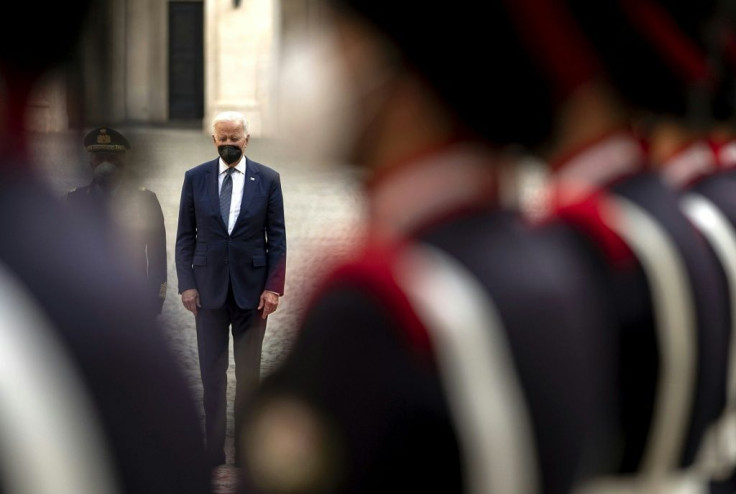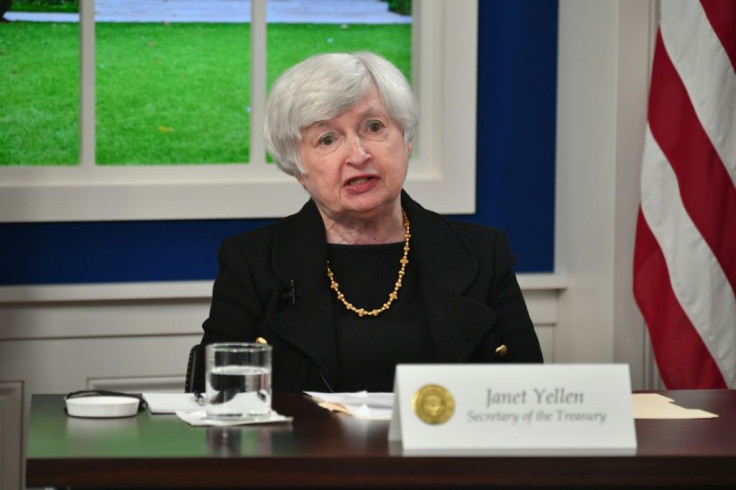US Inflation Has Not Yet Subsided, Posing Challenge To Biden
President Joe Biden has bet that the high US inflation rate will decline and help the case for the spending plans he's staked his presidency on, but data released Friday instead showed prices remaining stubbornly high in the world's largest economy.
There were also signs of an acceleration in wages that could further fuel inflation, as well as a spike in consumer expectations of price increases to come.
The Commerce Department reported inflation climbed 4.4 percent last month compared to September 2020, its biggest jump since January 1991 and the latest complications for the president's proposal to spend $1.75 trillion on an array of social services.
That bill, dubbed Build Back Better, has faced a tortuous path through Congress, where some moderate Democrats have worried it could make the price situation worse.
"I don't think that these investments will drive up inflation," Treasury Secretary Janet Yellen said in an interview with CNBC from Rome, where G20 leaders including Biden are gathering.

She said the cost of both the social spending plan as well as a $1.2 trillion measure to revamp the nation's infrastructure would be offset by higher levies on the wealthy and corporations as well as better tax enforcement, while helping families by lowering health and child care costs.
"The infrastructure and Build Back Better packages are spending that's really small relative to the economy in any year and spread over 10 years. And, as I said, it will boost the economy's potential to grow," Yellen said.
Strong consumer demand, shortages of workers, rising global energy prices and supply chains snarls that have disrupted production have been blamed with fueling the increases, as well as unique dynamics like jumps in used car prices.
Economists remain divided over whether the inflation wave will be temporary or long lasting, but the Republican opposition has included the price increases among their objections to Build Back Better, though some lawmakers have supported the infrastructure plan.

Either way, analysts fear the inflation situation could get worse before it gets better, with the Labor Department saying compensation costs had climbed by a seasonally adjusted 3.7 percent year-on-year in the third quarter of this year, well above expectations and their biggest jump since 2004.
Salaries and wages were up 4.2 percent over the same period after a 2.5 percent rise in the 12 months ending in September 2020, though that did encompass the brief recession sparked by Covid-19.
"We think it is entirely reasonable to expect wage growth to slow as labor supply rebounds, which ought to be clear over the course" of the fourth quarter of this year, Ian Shepherdson of Pantheon Macroeconomics said.
But if that doesn't happen, Shepherdson warned it would be "game over" for the easy money policies of the Federal Reserve, which could be forced to hike rates from zero as soon as June, with potentially disruptive effects on markets.
In a separate interview with CNN on Friday, Yellen reiterated the Biden administration's belief that annual inflation will retreat to around two percent by the second half of next year.
Consumers may not agree.
The University of Michigan on Friday said its consumer sentiment survey dropped to 71.7 points this month from 72.8 in September, while expectations for year-ahead inflation were at their highest level since 2008, and there was greater uncertainty about that figure than at any time in almost 40 years.
"This was the first major spike in inflation uncertainty recorded outside of a recession," the survey's chief economist Richard Curtin said.
While Curtin said consumers have tolerated the pandemic-fueled inflation and had money saved up to afford it, that patience may soon end just as vendors ratchet up prices to cope with higher labor and materials costs.
"These reactions promote an accelerating inflation rate until a tipping point is reached when consumers' incomes can no longer keep pace with escalating inflation," Curtin said.
© Copyright AFP {{Year}}. All rights reserved.




















